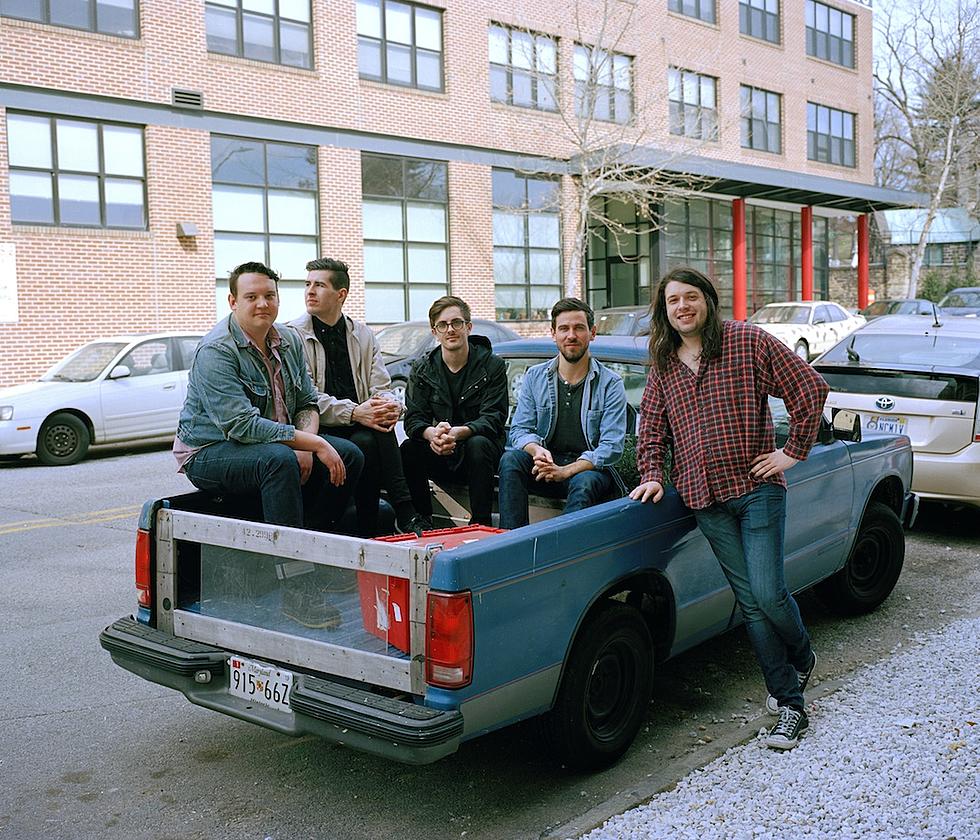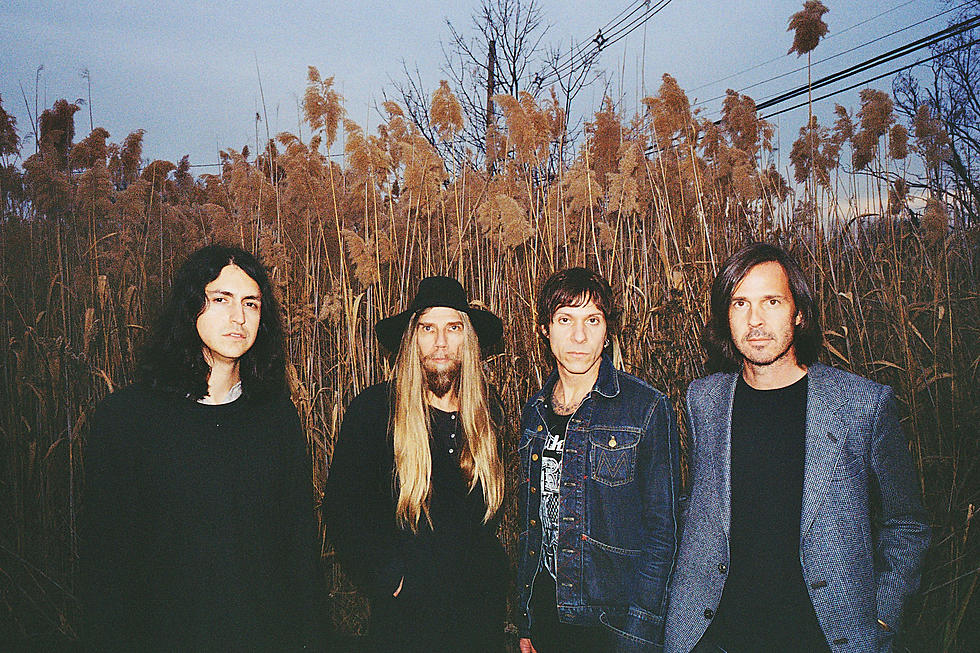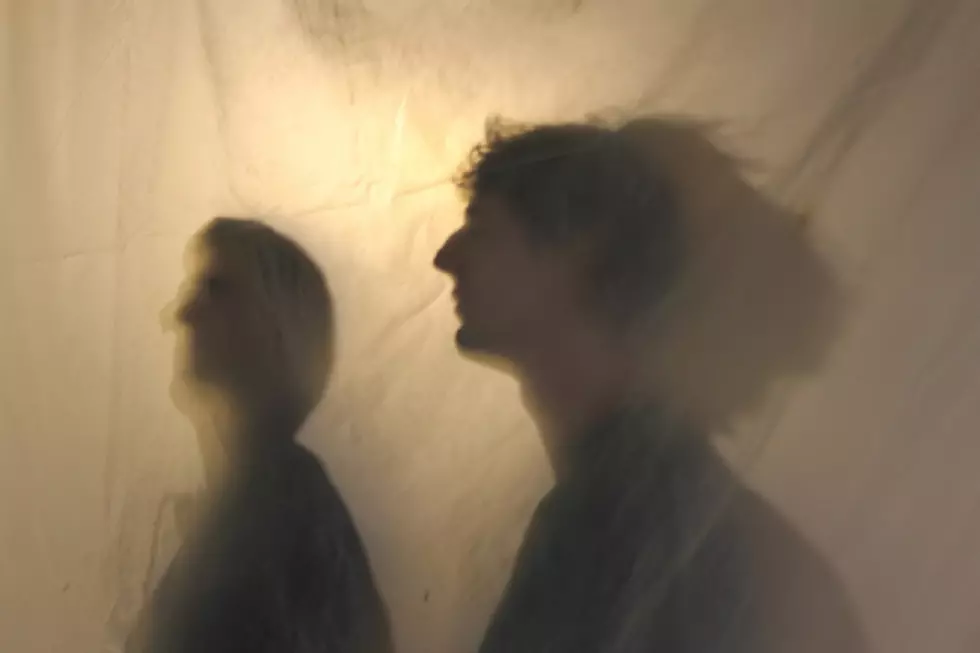
Loamlands Break Down Binaries on ‘Restless One’
Kym Register has had enough of your stupid either-ors. Male or female, North or South, punk or folk — what good are these all-or-nothing distinctions in the year 2016, when everything bleeds together as one and the same? Raise this issue to someone from Brooklyn or the Bay Area, and they'll very likely agree with you. But Register hails from North Carolina, home of HB2: a controversial law requiring that citizens use the bathroom associated with their "biological sex," regardless of identification. Since Governor Pat McCrory signed it into law earlier this year, artists and corporations (many from out of state) have decried the bill as the legislative product of conservatives desperate to preserve the very structures modern society has deemed obsolete — including the gender binary.
For the vast majority of those opposed, HB2 is a cause. However, for a genderqueer North Carolinian like Register (they identify as neither male nor female, and use third person pronouns), it's a harsh, everyday reality — even as a resident of Durham, the home of Duke University, as well as a pillar of the liberal, collegiate bubble known as "the Triangle." Art being a powerful tool against injustice, it's only natural that the politically outspoken Register (who got their start in the Triangle's DIY scene) launch a salvo of their own.
Enter the genre-defying Loamlands, Register's punk-meets-Americana project, comprising themselves and a rotating cast of collaborators featuring members of Sylvan Esso and Hiss Golden Messenger, among others. Following the release of 2014's EP Some Kind of Light, Loamlands are gearing up to release their debut album, Sweet High Rise, later this month. It's a narrative-heavy — and proudly queer — record, channeling both the South's folksy past and the crunchy protest music of the modern Merge roster, sporting a genre-defying sound as courageous as the issues breached: institutionalized bigotry, body dysmorphia, the agonies of love and loss. Ahead of the full-length's October 25 release date, CLRVYNT is proud to premiere one of its cuts, "Restless One." Listen below, and read on for our interview with Register.
Middle West will release Sweet High Rise on October 25. Pre-order here.
What was it like growing up in Durham? A lot of people think of it as this liberal college town, but it's got a dark history of its own, which you talk about on the record.
Yeah, I grew up in Durham, and I grew up in Chapel Hill. My mom’s from here and my grandma’s from there. Durham has always been the more economically challenged area in the Triangle, for a lot of people that live there. It’s hard to put into a small, succinct phrasing. Durham is nuts. [Laughs]. It was called the Black Wall Street back in the day. And it has a lot of insurgency in its history. And a lot of queer folk lived here, because it was the art center of the Triangle, because it’s cheaper to live here. So, a lot of queer folk moved downtown. A lot of people of color were living downtown. And I wasn’t here then; like, this is the history of the '70s and '80s, but I have a lot of the other art scene history. I grew up in Chapel Hill and a little bit in Durham, and so I was not in Durham a lot, but it's where the only gay club was, so I was like, "Cool."
Speaking from experience, the queer scene in college towns tends to be more concentrated than elsewhere. Were you exposed to queer theory at a young age? Was it it weird? On one hand, you’re in the South, but also, it’s a bubble.
That’s right on point: It was a super liberal bubble. There’s a lot of old rich white money in Chapel Hill and Durham. So, yeah, it’s a college town, it’s liberal — but then, there was a straight pride parade in response to the Dyke March we put on [from] the '90s through the early 2000s. So, it was so weird. It’s still the South, you know.
The other thing about that area is that it’s got a rich musical history. You’ve got Merge right there, and they’ve got that festival every year. It also has its DIY scene accompanying that. How’d you get involved in that musical community?
I just started hanging out. I started playing music by myself in my room, and then some of my friends did that. And we started playing, and then we had a band called Midtown Dickens that was totally DIY. We played about three or four shows. Then we found a space downtown for like 400 dollars a month, and we got a PA and set up a DIY space called Bull City Headquarters. [Laughs] And we started having shows there.
Returning to your music, I’m curious about your writing process, and how you shape all the stories. You refer to a lot of your songs as stories, and writing a story is definitely different than writing a pop song.
Yeah. That’s like a big process for me. I’ve wanted to figure out why I play and why I try to tour. I don’t want to just be like, "Look at me, I’m on stage." And that was what I did for a while. But then, I played at this club in Durham called the Pinhook [Author's note: Register owns the club, too] and we started theorizing about all the gentrification and all the shit that’s happening down here. That stuff become really important to me mid-writing this record. So, there’s a couple of songs about love, and tell your stories through your experience, or being physical and queer. It was kind of scary as fuck. It’s really hard to get a story into a two-minute song, you know? So, I sort of write about the way that I’m affected by these stories.
One of the difficulties I’ve always found, which you alluded to earlier, is the ownership of stories. I was talking to Paterson Hood from Drive-By Truckers about their record American Band, and how they were moved by all the police shootings of unarmed black men and the issues embedded within that. One of the things he mentioned was that, as a white man, a person who doesn’t belong to that group, it can be problematic going up on a national stage and commenting on it. Do you ever feel a certain burden with that?
For sure. That’s what kept me from writing songs about things like getting shot, [or] race relations. [But] I have a song on the new record called “Don’t Trust Cops.” [Laughs] It’s impossible to keep quiet about stuff like that. That song’s written about this person, Chuy. His name is Chuy Huerta. They were in a cop car, and apparently they fired a gun on him, or they pushed him, and they “shot themselves” in the back of this cop car. It was the first really crazy, wild protest I’ve seen in Durham in a while, with tear gas in the streets —because there was nothing done about the fact this happened. It was just like, "Oh, this dude shot himself in the back of a cop car." The story is so unbelievable.
I was like, "Oh, I feel so much. I’m so enraged. I need to write about it, but I can’t." I kind of wrote from the perspective of an angry voice of solidarity. But I think it’s doing a disservice to not write about it. But then there’s also — when you’re playing folk music and you’re playing in front of a bunch of people that are, like, rich, or people with money or privileged white people, it can be really hard to be like, "This song is called 'Don’t Trust Cops.'”
How do you find a way to get through to people? The traditional Southern way of life doesn’t really mesh with the social changes that have been taking place. How do we start that conversation?
So, yeah, that’s also a conversation I have every day in my life — and why do it, also, is another good question. Some people just aren’t gonna get it. One of the reasons I want to play music is because of this. Hey, you might care about genderqueerness, but someone you don’t know might not. And then [there’s the issue of ] having to do work to understand it within your relationship. My band vacillates a lot, but most of them are just straight white dudes. And I have a really nice time with them, but also, our manager is amazing, and he really cares about my pronouns, and talks to everyone we encounter [to make sure they know]. And that gives me so much hope for any kind of, like, wedge through the door of gender binary stuff. Because I’m like, “Cool, if I can reach people that never have to interact with queer folk, and interact with them and tell them my pronouns, I hope that then maybe the next time they meet someone else who’s genderqueer, they’ll think about it.”
You raise another point: A lot of the potential change has to do with representation on the main stage. We’re starting to get there, but it’s usually seen as a “punk” thing. I think Laura Jane Grace is kind of bridging that, and I think it's a matter of time before it becomes less of a niche thing, you know?
I was just going to be punk for a while. But I can do similar things with my quote-unquote Americana, too. I want to have that strength to do that. It’s hard. It’s not just a [question of] punk identity; it’s like [an issue of] genre identity. And it’s really important to me to hold that. I’m just trying to be myself in other areas that I love and have the passion for. And Mykki Blanco, and Big Freedia, and Le1f — all these people of color are doing queer things. It is becoming more and more acceptable, which is cool. But there’s always like a fight, you know?
Obviously, I have to ask: As a North Carolina native, what is your take on [current governor and HB2 proponent] Pat McCrory? Do you think he’s going down in November's election, given how unpopular the bathroom law has been?
It’s insane. You know, I’m so in and out of identifying with anarchism and far left, non-left politics. So, getting involved with things like voting and actual politics tends to be very hard, and something I don’t necessarily want to participate in, but I do — I do vote. And I think that all politicians are all part of things that drive the the state, and capitalism, and that inherently screws everyone over — except the 1%. But there’s that’s perspective that’s super real. But there’s also my state’s elections; I don’t know about presidential elections. And yeah — I know [McCrory’s] numbers are down, but it all comes down to who’s better of two evils. That’s what I think. And it's really about moving the conversation — and the wage gap — forward.
More From CLRVYNT









